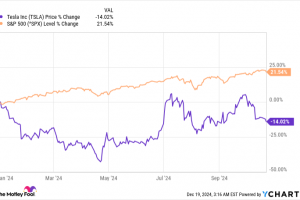
By this time last year, every stock market forecast made for 2022 was wrong. The U.S. stock market peaked on the first trading day of 2022 and went downhill from there.
This year, every forecast made for 2023 could pan out. Heightened volatility. Early rally. A downturn mid-year is certainly possible. Recession this fall and winter is also possible. A soft landing for the U.S. economy? Could happen.
The National Association for Business Economics’ most recent outlook survey showed that economists can’t agree on anything, from how high the Federal Reserve will raise interest rates to how long rates stay elevated and when cuts should begin, to what would trigger rate cuts and more.
Fed Chairman Jerome Powell contributes to the divergence of opinions by always attaching the words “data dependent” to any tip of his hand, meaning we can’t know exactly what the central bank is planning without knowing the next key economic indicator, and the one after that (and the one after that).
The array of potential scenarios that experts can describe for inflation, monetary policy, macroeconomic momentum, corporate earnings and geopolitical risks is a reminder of why investors shouldn’t base financial decisions on predictions.
If you do give weight to predictions, avoid the sweeping trend forecast and watch for the pivot point that, once reached, could determine which strategies win and lose in 2023.
Zed Osmani, portfolio manager at Martin Currie Global Portfolio Trust, said in a recent interview on my podcast, “Money Life with Chuck Jaffe,” that he expects “a healthy bull-bear debate about whether central banks will be pivoting in 2023 or 2024.”
He is looking at any pivot “in terms of magnitude, which leads to volatility in markets remaining high because of this array of potential scenarios and bull-bear debates, across inflation, across monetary policies, across the cycle and whether we are heading into a recession or whether we avoid one.”
Typically, disagreement makes a market; the compelling arguments lead…
..






